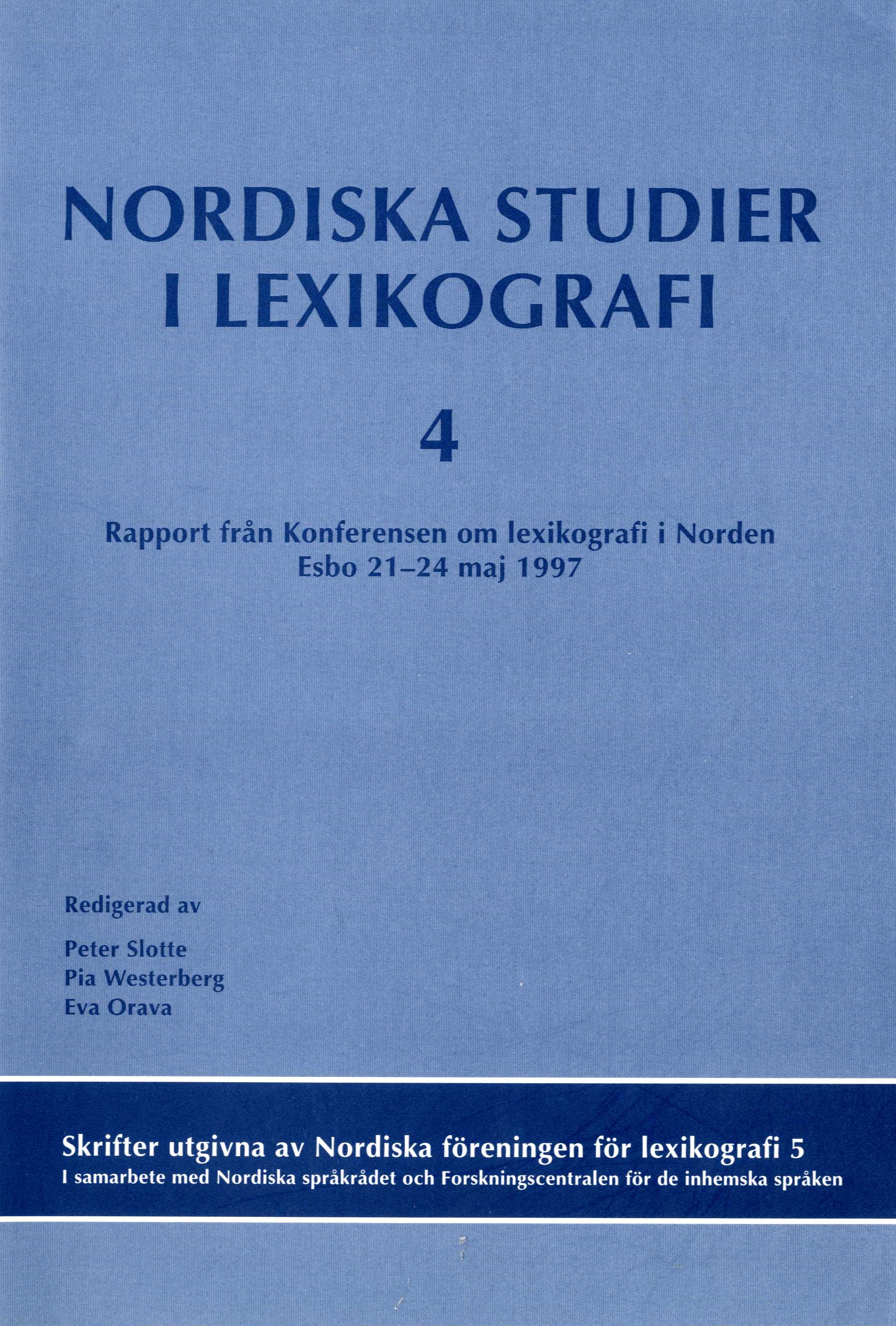Vad söker läsaren i en etymologisk ordbok?
Resumé
This paper deals with the relationship between an etymological dictionary and its reader from a Finno-Ugric point of view. Finnish is a member of the Finno-Ugric language family. The etymological material and the knowledge ofthe origins ofthe Finno-Ugric word stock is based mainly on reconstructed forms, because of the Jack of old recorded material and text documents. Etymological dictionaries are divided into three groups: I) comparative dictionaries present the word stock of one language fiunily 2) thematic dictionaries present the words from one language or group oflanguages that have the same type of etymology (e.g. loan-words from a given source) 3) common etymological dictionaries with information about the origins of the whole word stock in one language. The purpose of the fust and second types of etymological dictionaries is to serve as source of information for linguists who have the capacity of reading scientific texts with special terminology. Most kinds of different needs are found within the readers of the third type of dictionaries. It is necessary to find a solution that satisfies as well linguists and professionals of etymology as the reading public intrested in basic etymological knowledge.Downloads
Publiceret
1997-01-01
Citation/Eksport
Kulonen, U.-M. (1997). Vad söker läsaren i en etymologisk ordbok?. Nordiske Studier I Leksikografi, (4). Hentet fra https://tidsskrift.dk/nsil/article/view/19556
Nummer
Sektion
Artikler
Licens
Nordisk Forening for Leksikografi/NSL og forfatterne.





